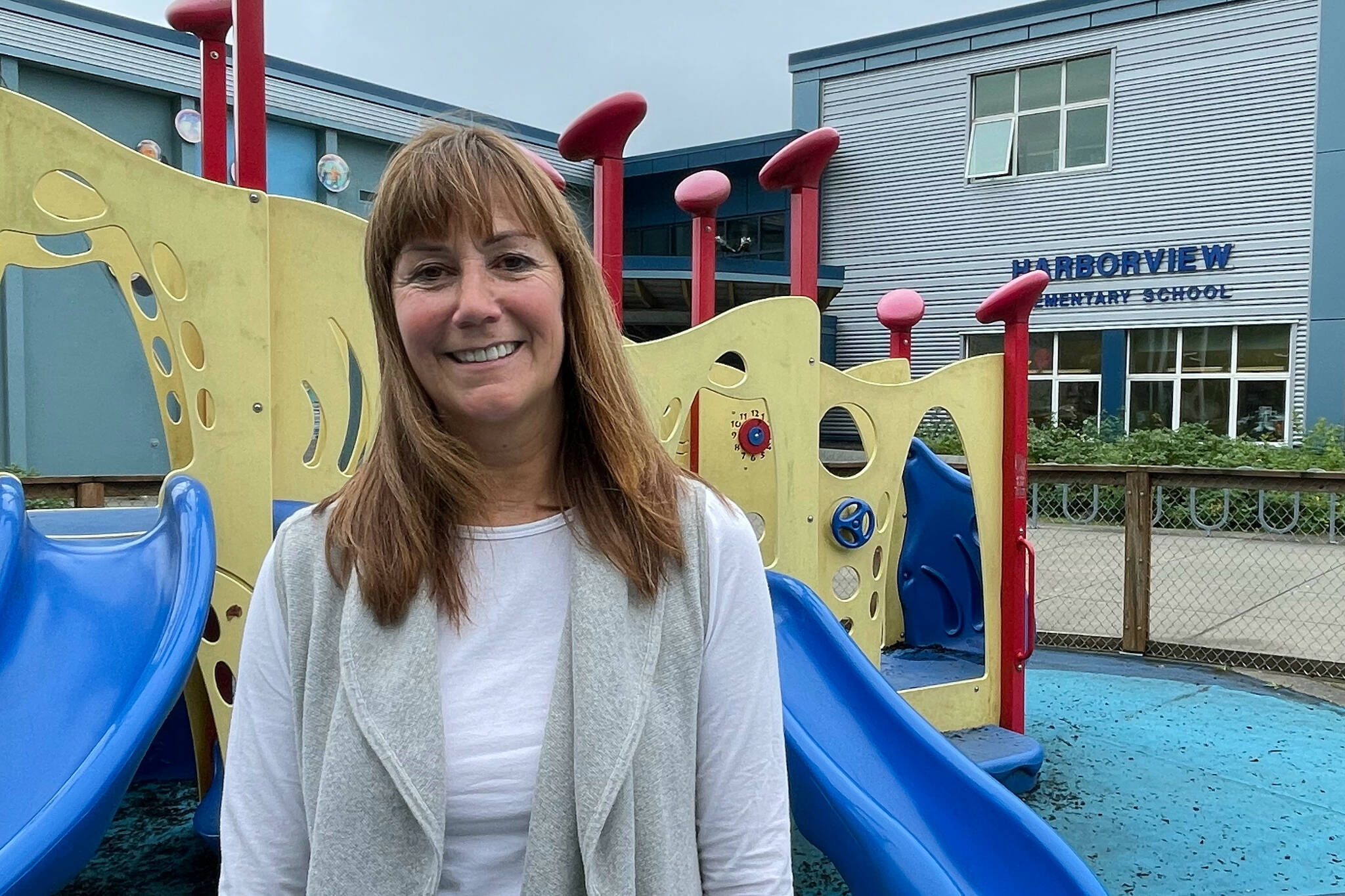Hindsight is the only perfect view of things; in times of crisis, we ought only be judged by how we performed based on what we knew at the time.
However, Time magazine apparently rated Bridget Weiss’ performance as superintendent of the Juneau School District in the time as pandemic quite highly, naming her to a list of 29 personnel from teachers and bus drivers to librarians and principals in America’s schools who led their charges through the coronavirus pandemic.
“It is an honor for sure,” Weiss said in an interview Wednesday. “I feel completely representative of so many people who have worked incredibly hard to respond to the pandemic in our educational setting.”
Weiss credited families, district staff, and the community for their hard work as they pushed through the pandemic.
“It’s such a cool thing. This [award] was a national all-call. I was interviewed last May. I didn’t really think much about it,” Weiss said. “To be included in it is so fun, and so representative of the amazing people we have in Alaska who have worked through this pandemic equally hard, equally well.”
Long term, broad impact
Weiss said that before the pandemic, many of the crises that the district planned for were more limited in scope.
“The typical crises are more short-term events. Big impact, but shorter term. The death of a staff member, the death of a child. Some sort of environmental experience — a landslide, a flooded school, a school fire. Safety events at a school,” Weiss said. “Those are the more classic things that are very serious. They take a lot of preplanning. But the difference is that most of those crises are shorter-term or they impact a smaller subset of people. The pandemic has impacted every single person.”
For the district, Weiss said they started looking at contingencies in late February, giving them a leg up when Gov. Mike Dunleavy closed all schools in Alaska on March 13, 2020, as Juneau had its first in-school coronavirus scare.
“That night, we decided to close Gastineau that Friday while we figured out what to do. That was long before we knew anything to do,” Weiss said. “I said, ‘I need three days with no kids in school to prepare.’ Back then, that was extraordinary. It was a big ask at the time.”
Putting that planning by district staff into action, the district was able to kick distanced-learning and meal programs into motion the very next Monday, Weiss said.
“We were ahead of the game, as ahead as you could be. We were already sort of in step when the government made that announcement,” Weiss said. “On that Friday night, when the governor made that announcement, we were delivering meals and learning on Monday.”
Planning for the unknown
That was one of four clear operational phases the district has implemented so far, Weiss said, beginning with the improvised distance learning, to more organized distance learning in fall of 2020, to hybrid distance and in-person learning in spring of 2021, to basically fully in-person learning once more in fall of 2021.
“It was like operating with a curtain. There was something there but we didn’t know what,” Weiss said. “We were preparing for what might be behind the curtain.”
When asked if there were regrets, things she wished she’d done differently in retrospect, Weiss said that decisions she made were the ones she’d make again, and that the introduction of working vaccines has been a tidal shift for reentering schools.
“The vaccine has been a deal-maker. Anything that I wish we had done, we didn’t, because there was some obstacle,” Weiss said. “I don’t think we could have — without the help of the vaccine — been able to do it safely or even operate.”
Balancing the needs of students, staff and the effects of any decision on the community has informed all the calls she’s made, Weiss said.
Making the call on the spot
The decisions Weiss made as superintendent have the potential to be some of the most directly impactful in the community, with about 5,000 students and employees in the district in this isolated city with limited access to outside resources.
“I’ve made a zillion decisions during this time, each with painstaking care. Some of those decisions have been popular, some of them have not been popular,” Weiss said. “Whether they’re popular decisions or not, I made each of those with the most information I could gather in order to make informed decisions.”
A district policy regarding travel for a sports team to areas with high case counts and a school board-approved district-wide indoor mask mandate currently in effect have been among district decisions that have faced some pushback.
A takeaway for the district is the maneuverability of the education system when it’s needed, typically viewed as a monolithic entity, Weiss said.
“One of the things we’ve learned is that we can do it. Education is traditionally slow to change, slow to reform. It’s a big machine. It’s the difference between turning a tour ship and turning a skiff in the channel to head out,” Weiss said. “We can change. We can rejuvenate our work.”
Despite working without a day off for nine months with barely event to go run, a workload more akin to a combat deployment than that of a district superintendent, Weiss said she was glad she was here to serve the school district that raised her.
“I’m a born-and-raised Juneauite. I feel like I have held strong. It has been no question exhausting and taken its toll. I would certainly never, ever, ever choose to do this again under these conditions,” Weiss said. “There isn’t anywhere else I’d rather serve at any time, let alone during a pandemic.”
• Contact reporter Michael S. Lockett at (757) 621-1197 or mlockett@juneauempire.com.

